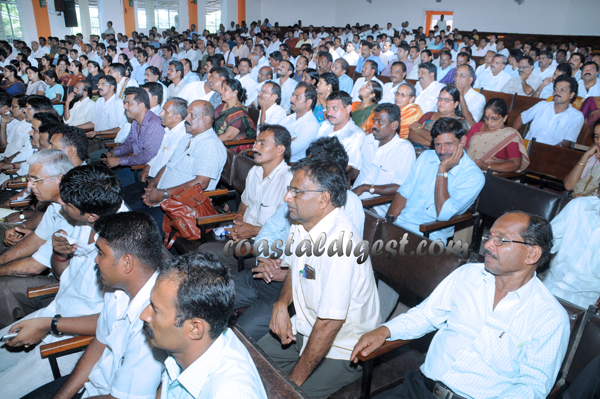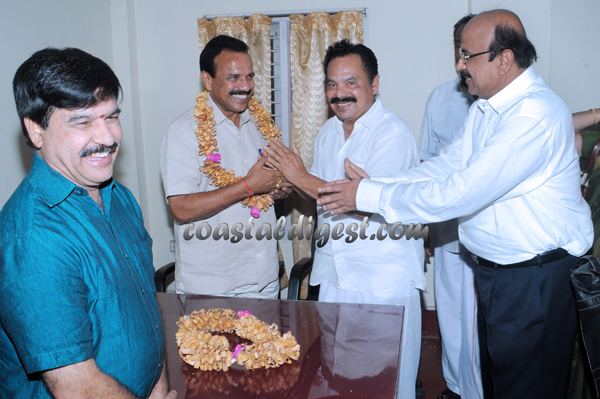
Mangalore, June 2: This is the time to prove that educated voters are with the Bharatiya Janata Party, said Chief Minister D V Sadananda Gowda.
He was addressing BJP workers at a preparatory meeting of the party in connection with election to South-West Teachers' Constituency and South-West Graduates Constituency scheduled on June 10.
Mr Gowda told party workers that winning the coming State Legislative Council election would be a challenge for the party.
The party has fielded D. H. Shankaramurthy, Chairperson, Karnataka Legislative Council as the candidate for South-West Graduates' Constituency for the fifth time. It has fielded Ganesh Karnik, sitting MLC, as its candidate for the South-West Teachers' Constituency for the second time.
Mr Gowda said that the Legislative Council had MLCs representing different sectors of the society. The council always had a healthy debate in detail over many issues. The council discussed more issues when compared to issues discussed in the Legislative Assembly.
He reiterated that services of the State Secretariat would also be brought under the ambit of Sakala launched this April. He said that of the 18.50 lakh applications filed under the scheme in a month after its launch, the government had disposed off 15.34 lakh applications.
The Chief Minister claimed that the BJP announcing the names of its six candidates for the election of MLCs from the Legislative Assembly without any issues indicated that the party was united. He said that the Congress was now divided over selecting its candidates. Congress leader Siddaramaiah has quit as the Leader of the Opposition in the Assembly over issues relating to selection of Congress candidates.
Minister for Medical Education S. A. Ramdas said that the coming election to the Legislative Council from the constituencies of teachers and graduates would be a “semi-final” to the next year's election to the State Assembly. The Minister said the BJP had to carry out “operation Kamala” due to the fractured verdict in the last Assembly elections.











Comments
Add new comment